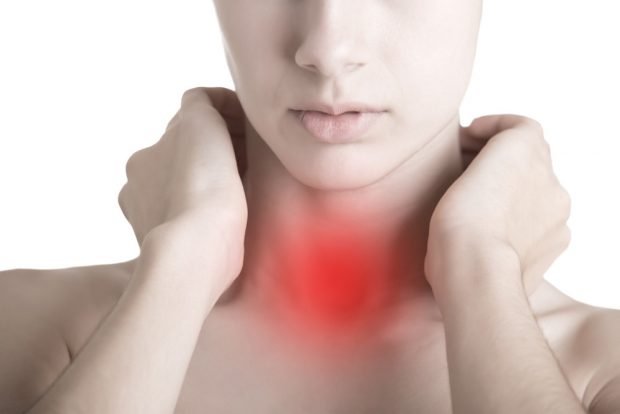More than two billion people around the world are suffering from a deficiency of micronutrients, according to the World Health Organization (WHO). Micronutrient deficiency also referred to as “hidden hunger” is the lack of vitamins and minerals. It can result from factors like poverty, inaccessibility of various healthy foods, as well as illiteracy of optimal dietary practices, and a higher incidence of infectious diseases. Its life-threatening health impacts are not always as visible, making it too late for others to prevent the chronic diseases caused by it.
What are micronutrients?
Micronutrients are one of the two major groups of nutrients, apart from macronutrients that include fat, protein, carbohydrate. Based on the prefix “micro-”, our bodies only need small but ample amount of micronutrients. Also, one’s body cannot produce micronutrients, so they must be derived from one’s diet.
It is divided into two groups: vitamins and minerals. Vitamins are needed for one’s immune function, energy production, as well as blood clotting, and many more, while minerals are needed for one’s bone health, growth, as well as fluid balance, and other processes.
Vitamins are categorized into two: water-soluble vitamins and fat-soluble vitamins. These organic compounds are created by animals and plants, which can be broken down by air, heat, or acid. On the one hand, minerals are also categorized into two: macrominerals and trace minerals. These compounds exist in water or soil and typically cannot be broken down by any elements.
Why Micronutrients Are Essential
Many individuals often disregard micronutrients since, as stated earlier, our bodies only need a small number of vitamins and minerals. However, each vitamin and mineral is vital to one’s development, disease prevention, and wellbeing.

For many fitness enthusiasts, they know the importance of vitamins and minerals in one’s body. This is due to the fact that they include daily multivitamin for bodybuilding, fat loss, as well as muscle recovery in their workout regimen. The following are the reasons why micronutrients are important in one’s body.
Water-soluble vitamins
Water-soluble vitamins, as a result of its name itself, are dissolved in water and it is hard to store them in one’s body. Therefore, when excessively consumed, these kinds of vitamins are flushed out with our urine most of the time.
In general, water-soluble vitamins are necessary for energy production, but they also have other responsibilities in one’s body. Here’s a list of water-soluble vitamins and their corresponding functions.
|
Vitamin |
Name |
Functions |
|
Vitamin B1 |
Thiamine |
Needed for the conversion of carbohydrates to energy. |
|
Vitamin B2 |
Riboflavin |
Needed for fat metabolism as well as energy production and cell function. |
|
Vitamin B3 |
Niacin |
Needed for the nervous system and psychological function. Furthermore, it is also the reduction of tiredness and fatigue, conversion of food to glucose to energy. |
|
Vitamin B5 |
Pantothenic Acid |
Needed for synthesizing fatty acid as well as blood cell production, and also for the conversion of food to energy. |
|
Vitamin B6 |
Pyridoxine |
Needed for protein, neurotransmitter, fat and carbohydrate metabolism, and also the production of red blood cells. |
|
Vitamin B7 |
Biotin |
Needed for energy production, including the metabolism of glucose, fatty acids, and also amino acids. |
|
Vitamin B9 |
Folate |
Needed for proper cell division; breaking down, using, and creating new proteins, as well as red blood cell production. |
|
Vitamin B12 |
Cobalamin |
Needed for normal brain and nervous system function. Furthermore, it also plays a role in red blood cell formation, regularization of DNA, and also cell metabolism. |
|
Vitamin C |
Ascorbic Acid |
Needed for development, growth, and repair of all body tissue, including collagen formation, wound healing, bones, teeth, and also cartilage maintenance. Furthermore, it is also involved in the absorption of iron and maintaining the immune system. |
Fat-Soluble Vitamins
Fat-soluble vitamins are dissolved in oil and fat, rather than in water. They are absorbed when consumed together with a source of fats in one’s diet and can also be stored in one’s body’s fatty tissue for future use.
They have a multitude of functions, above all the most important keeping your heart to work properly and allowing your blood clot to happen. Fat-soluble vitamins include vitamins A, D, E, and K. The following are their main responsibilities in maintaining one’s health.
|
Vitamin |
Name |
Function |
|
Vitamin A |
Retinol |
Needed for clearer vision even in low light. Furthermore, it also plays a role in maintaining healthy skin, teeth, skeletal and soft tissue, and mucous membrane. |
|
Vitamin D |
ergocalciferol (Vitamin D2)/ cholecalciferol (Vitamin D3 |
Needed for calcium absorption and bone growth, as well as proper immune function. |
|
Vitamin E |
Tocopherols/ Tocotrienols |
An antioxidant for body tissue needed for protection from damage caused by free radicals. |
|
Vitamin K |
|
Needed for blood clotting, as well as regulating blood calcium levels and bone metabolism. |
Macrominerals
Calcium, phosphorus, magnesium, sodium, chloride, potassium, and sulfur are the minerals to make up the group of macrominerals. Furthermore, macrominerals need to be consumed in a larger amount for the proper functioning of its specific roles. The following are the functions of macrominerals:
- Calcium – Needed for proper blood vessel contraction and muscle function. Furthermore, it’s also involved in blood clotting, regulation of fluid balance within cells and heartbeat, nerve impulse, proper structure, and building bones and teeth.

- Phosphorus – Needed for growth, repair, and maintenance of cells and tissues, as well as the formation of teeth and bone structure.
- Magnesium – Needed for more than 300 biochemical/enzyme reactions like regulation of blood pressure and immune system, maintenance of normal muscle and nerve function.
- Sodium – An electrolyte needed for fluid balance, as well as the maintenance of blood pressure and blood volume, transmitting nerve impulses, and cellular osmotic pressure.
- Chloride – In combination with sodium for maintenance of fluid balance as well as the production of digestive juices.
- Potassium – An electrolyte needed for nerve signals, as well as muscle contractions, and fluid balance.
- Sulfur – An amino acid needed for protein synthesis, as well as enzyme reactions, collagen formation.
Trace minerals
In contrast to macrominerals, our bodies only need smaller amounts of trace minerals. However, trace minerals like Iron, Manganese, Copper, Zinc, Iodine, Fluoride, and Selenium enable fundamental functions in our bodies. Here are some of their functions:
- Iron – Needed for blood production as well as the creation of certain hormones.
- Manganese – Needed for the formation of sex hormones, as well as the formation of bones and connective tissues, calcium absorption, fat and carbohydrate metabolism, amino and cholesterol metabolism, blood sugar regulation, normal nerve, and brain function.
- Zinc – Needed for cell division and cell growth, as well as wound healing, immune function, normal growth, breakdown of carbohydrates, and sense of taste and smell.
- Iodine – Needed for thyroid regulation used in the development of bone and brain during infancy and pregnancy.
- Fluoride – Needed for teeth development as well as bone development.
- Selenium – Needed for thyroid health, as well as defense and reproduction against oxidative damage.
Life-Threatening Micronutrient Deficiency Diseases
1. Anemia
Anemia is caused by a lack of either anemia, vitamin B-12, or folate. Young children and women of child-bearing age, especially from areas where intestinal parasitic infestation and malaria are prevalent, are most likely at risk of anemia. Consequently, there have been 2.5 million and 3.4 million maternal and neonatal deaths caused by anemia around the world.
Anemia’s symptoms are the following:
- Weakness/Tiredness/Fatigue
- Dizziness or lightheadedness
- Headaches
- Irregular heartbeats
- Breathlessness
- Chest pain, and also
- Pale or yellowish skin conjunctiva (inner eyelid), nail beds, gums, tongue, lips, and also the skin
If left untreated, anemia can result in:
- Pregnancy complications. Pregnant women need to double their iron consumption to produce more blood and supply oxygen to their babies in their wombs. Severe anemia may lead to low birth weight and also premature delivery of babies.
- Heart problems. Anemia leads to arrhythmia or irregular heartbeat. Therefore, if a person is anemic, his/her heart should pump more blood to compensate for his/her lack of oxygen in his/her blood. Otherwise, this instance will lead to heart enlargement and failure.
- Death. Sudden blood loss will consequently result in fatal acute or severe anemia. It seems like this situation happens whenever someone has inherited anemia like sickle cell anemia, causing someone’s sudden death.
To prevent anemia from happening, one should include the following in their diet:
- Iron-rich foods from beef and other meats, beans, lentils, iron-fortified cereals, as well as dark green leafy vegetables, and dried fruit.
- Folate or folic acid from enriched grain products like cereal, bread, pasta, and rice, as well as green peas, kidney beans, peanuts, dark green leafy vegetables, and fruits.
- Vitamin B-12-rich foods from fortified cereal, dairy products as well as meat, and soy products.
- Vitamin C-rich foods from citrus fruits, other fruits like strawberries and melons, as well as tomatoes, peppers, and broccoli.
2. Xerophthalmia

Xerophthalmia is an eye disease that is consequently caused by a severe deficiency of vitamin A. Lack of vitamin A can dry out your eyes as well as your tear ducts, causing white spots on one’s eyes and ulcers on corneas. If vitamin A deficiency will not be treated, the following symptoms will progressively occur, starting from mild to worse:
- Night blindness
- Conjunctival Xerosis or dryness of the eye membranes
- Corneal Xerosis or dryness of the cornea, and also
- Keratomalacia or the eye softening and ulceration of the cornea
Vitamin A deficiency is common to many children in developing countries, as a result of less access to fresh vegetables and fruits and animal products. Additionally, the following factors affect Vitamin A absorption:
- alcoholism
- cystic fibrosis
- celiac disease that limits nutrient absorption
- chronic diarrhea
- Cirrhosis (liver disease), and also
- radioiodine treatment for thyroid cancer
Vitamin A deficiency is the primary cause of preventable blindness in both children and women. It also increases the risk of disease and death from severe infections such as diarrhea, measles, chickenpox, and respiratory infections, and heightens the risk of maternal mortality.
3. Iodine Deficiency Disorders (IDDs)
As stated earlier, iodine is used for production and regulation of thyroid hormones, which are needed for bone and brain development during infancy and pregnancy. Iodine deficiency can cause hypothyroidism and also low levels of thyroid hormones.
Around the world, there are 8 million babies who are born mentally impaired due to maternal iodine deficiency. A severe iodine deficiency or low amounts of thyroid hormones during a woman’s pregnancy can, consequently, increase the risk of:
- Stillbirth
- Miscarriages
- Preterm Delivery, and also
- Congenital abnormalities in newborns, such as cretinism or irreversible form of mental retardation
Babies with iodine deficiency often encounter:
- puffy face
- large tongue
- extreme sleepiness
- frequent choking
- poor muscle tone, and also
- constipation
For children and teens, this condition may lead to:
- delayed tooth development
- poor growth
- delayed puberty, and also
- poor mental development
Iodine deficiency also causes cognitive issues to adults, such as having low IQ and trouble in learning. Aside from pregnant women, this disease is also very common to:
- People who are following a vegan or vegetarian diet
- Those who reside in mountainous areas, consequently where seafood and iodized salt are limited.
- People living in areas with inadequate iodine in soil, including other areas in South and Southeast Asia, and also New Zealand and European countries.
One common sign of iodine deficiency is having goiters, a visible lump on your neck, caused by swelling of the thyroid gland. Other symptoms of hypothyroidism also include the following:
- weight gain

- puffy face
- fatigue
- muscle weakness
- pain or stiffness in the muscles and also the joints
- dry Skin
- thinning hair
- constipation
- increased sensitivity to cold
- depression
- poor memory
- slowed heart rate
- elevated blood cholesterol levels, and also
- Irregular menstruation
Severe hypothyroidism can consequently lead to complications like heart enlargement and failure, and also mental health issues. Furthermore, it can also cause cognitive impairment, peripheral neuropathy, and impaired ovulation that can cause infertility to women.
Takeaway
Anemia, xerophthalmia, and IDDs are few among the many life-threatening diseases consequently caused by a deficiency of micronutrients. For that reason, it’s important to get treated right away, as they can be totally reversed with little to no side effects.
Want to know more?
If you need any more reason to eat the rainbow, we’ve certainly got plenty. Phytonutrients are compounds that can be found in plants and they are probably the most important. Above all, they serve various functions, all in a bid to ensure the plant’s longevity. Click here to find out how these compounds protect plants and also humans from the dangers of free radicals.





![women [longevity live]](https://longevitylive.com/wp-content/uploads/2020/01/photo-of-women-walking-down-the-street-1116984-100x100.jpg)










